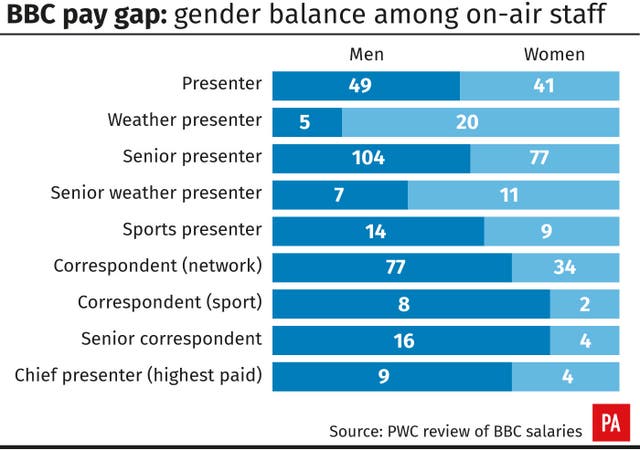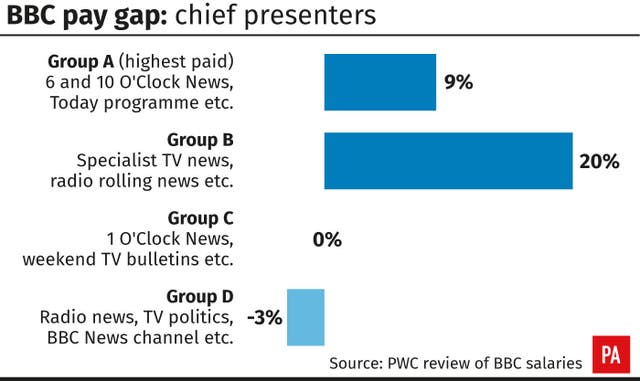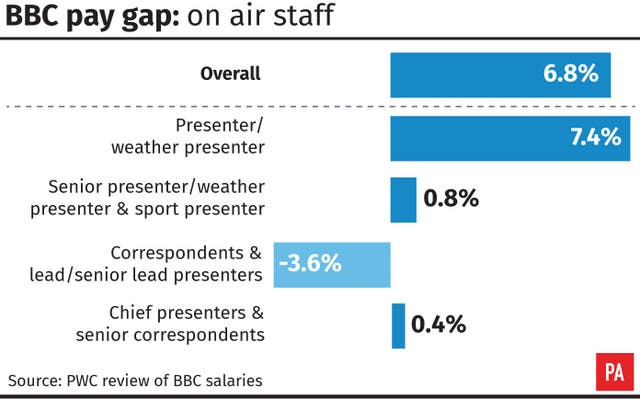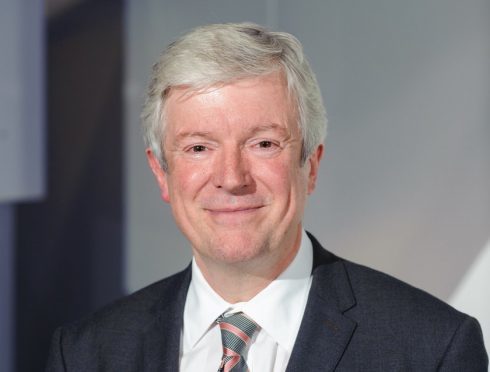BBC director-general Tony Hall will appear before MPs as the corporation faces further scrutiny over gender pay inequality.
Lord Hall will appear before the Digital, Culture, Media and Sport Committee on Wednesday.
The committee will also hear from the BBC’s former China editor Carrie Gracie, who resigned from her role in protest at inequalities, and Michelle Stanistreet, the general secretary of the National Union of Journalists.
Lord Hall has apologised to any BBC employee who has not been paid correctly, but said he believes that there has been no illegality regarding unfairness in pay.

His comments came after a review published on Tuesday found there was “no evidence of gender bias in pay decision-making” at the BBC.
Lord Hall told Channel 4 News’s Cathy Newman, when asked if he has taken a pay cut: “No I haven’t. I’ve had exactly the same pay since I came here, I don’t seek any more, I don’t seek any less.
The @BBC's Director-General, @TonyHallBBCDG, apologises for unequal pay at the organisation. pic.twitter.com/s9aQlbuzkt
— Channel 4 News (@Channel4News) January 30, 2018
“I’m extremely well paid and I will leave it at that. I think I am paid properly for what I do and I’ll just leave it at that.”
Lord Hall was last year revealed in the BBC’s annual report to be in the £450,000-£499,999 bracket when the broadcaster published a list of its top earners.
The report, which revealed the pay for staff on more than £150,000, revealed a gap in the earnings of its best-known male and female presenters and actors.

Radio 2’s Chris Evans topped the list on more than £2 million, while the highest paid woman was Claudia Winkleman on between £450,000 and £499,999.
Lord Hall told Newman: “I don’t believe there has been illegality in the BBC to the point where someone said you’re a woman therefore you’re going to be paid less.
“What is absolutely unacceptable in any workplace is for someone to say, ‘The BBC doesn’t do equality’ or, ‘Go away, you’re a woman’, that is just not right and that is not the workplace that I want and that is not a workplace that I think women should want either.
“That’s what I want to change and this is a cultural change in all sorts of ways.”

Lord Hall said he apologises “if anybody has had a situation where their pay has been dramatically or in some ways not been paid correctly” and that he would say sorry to those with “specific cases”.
“If there are women, and we’ve had over 90 cases already where people have said we’ve had to have pay adjustments, I’m sorry they’ve had to go through all that process to do that,” he said.
“Some of them as it happens are men and I’m sorry to them too.
“I’m responsible for this organisation and as one human being to another, that should not happen.”
He urged those with pay grievances to share their stories and to not “write anonymously”, adding: “We want to deal with it.”
"I’ve had exactly the same pay since I came here, I don’t seek any more, I don’t seek any less. I’m extremely well paid and I will leave it at that." Tony Hall tells @cathynewman when asked if he has taken a pay cut. #c4news pic.twitter.com/vJ9nqICMl5
— Hayley Barlow (@Hayley_Barlow) January 30, 2018
In the newly published review, carried out by PricewaterhouseCoopers, it was said there was a “lack of clarity and openness about the basis for pay decisions” at the BBC.
It found “no evidence of gender bias in pay decision-making”, although BBC Women – a group that includes presenters such as Jane Garvey, Mishal Husain and Victoria Derbyshire – have rejected the on-air review.
Following the review, BBC director of news and current affairs Fran Unsworth has said some presenters had high salaries as a “legacy” of previous pay deals.
